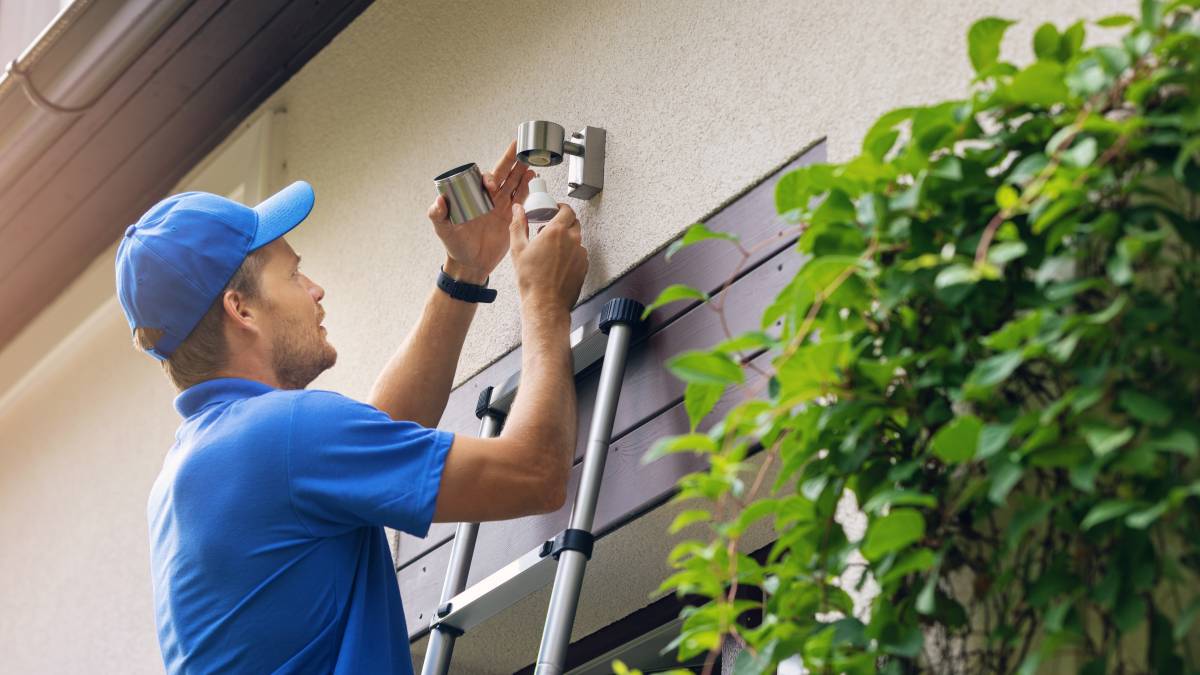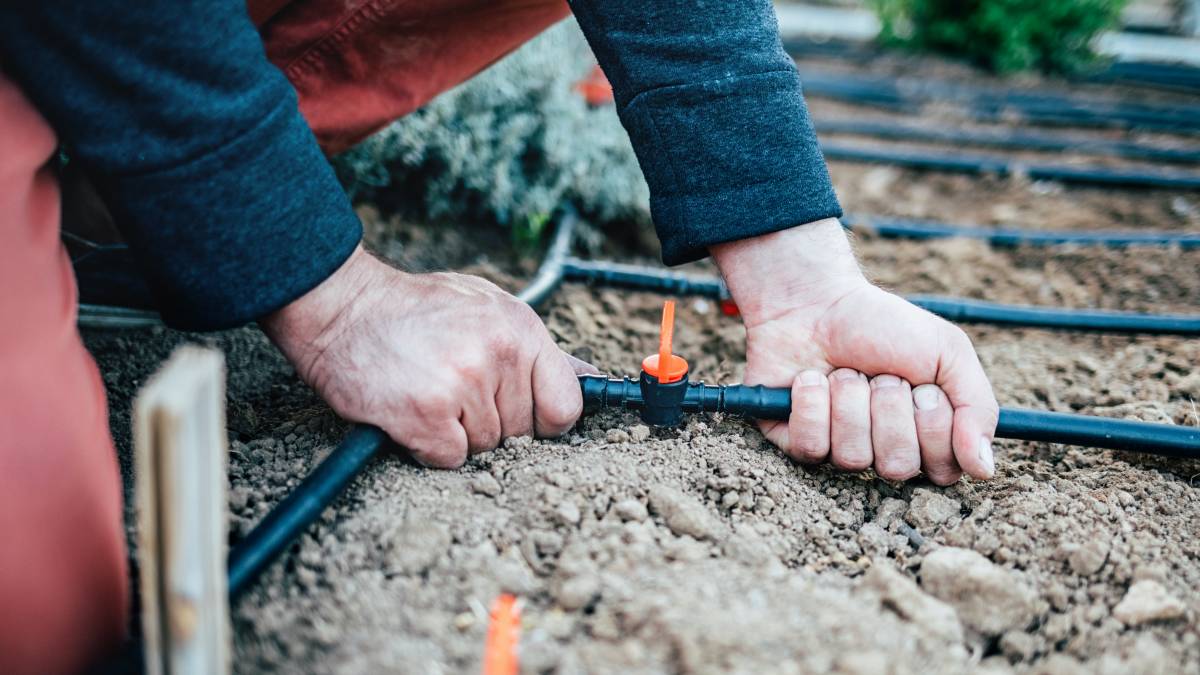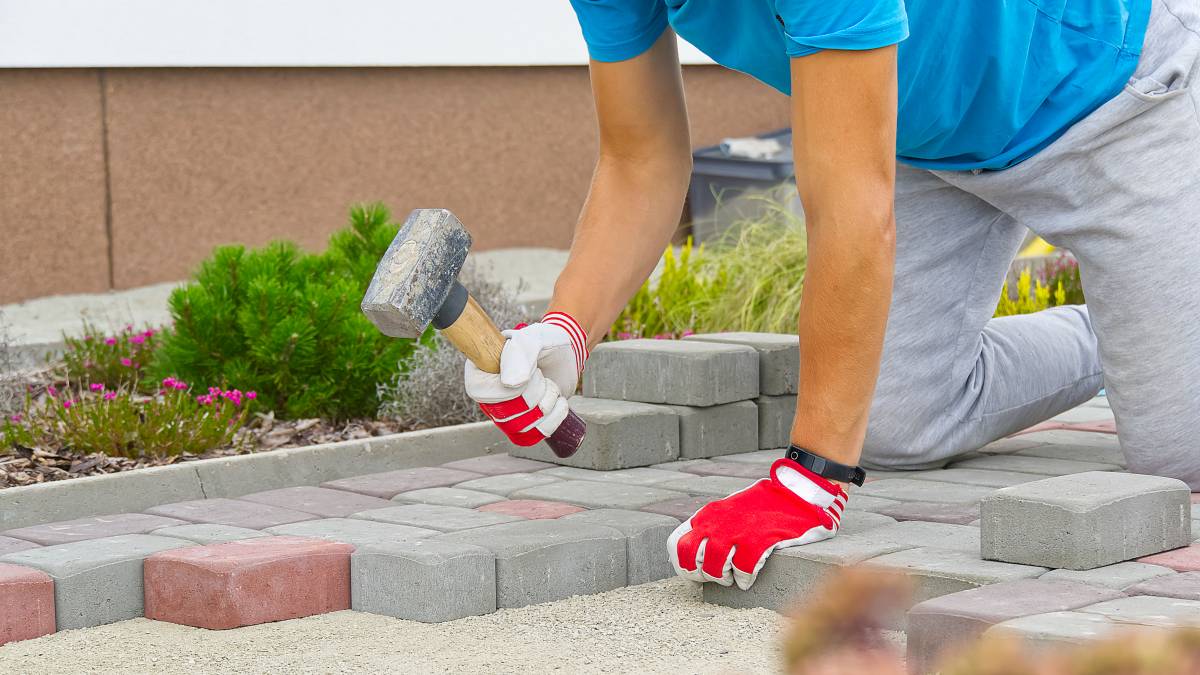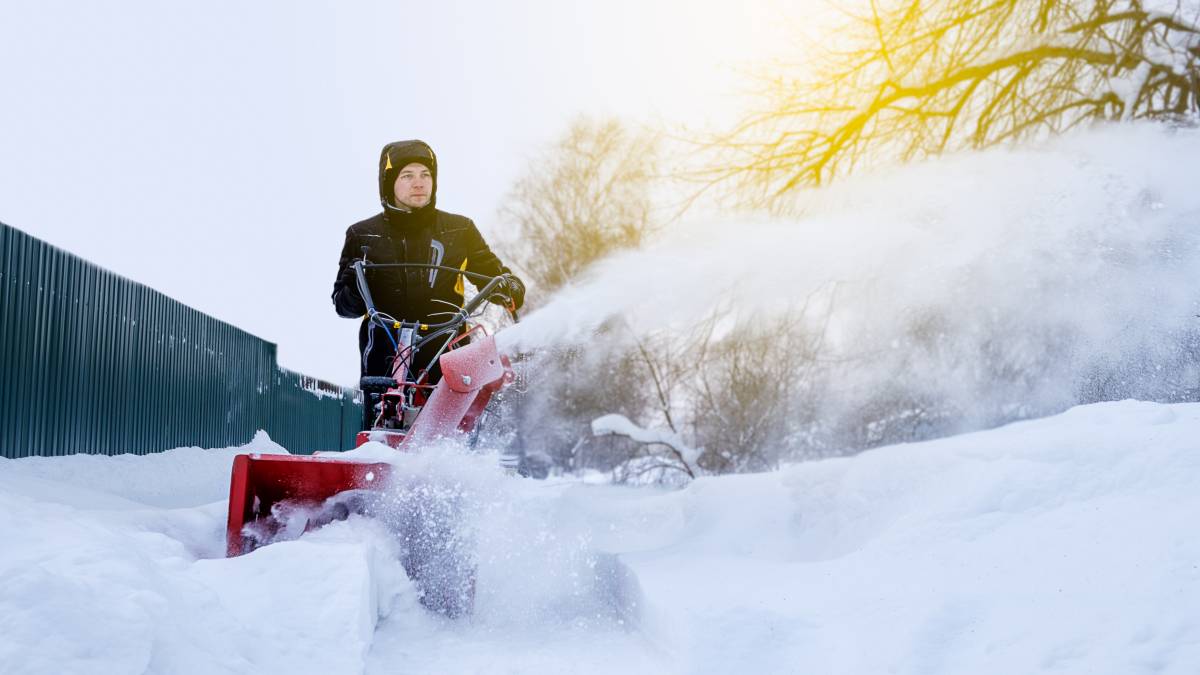- Home/
- Costs/
- Trench Digging/
- Trench-digging Cost Guide
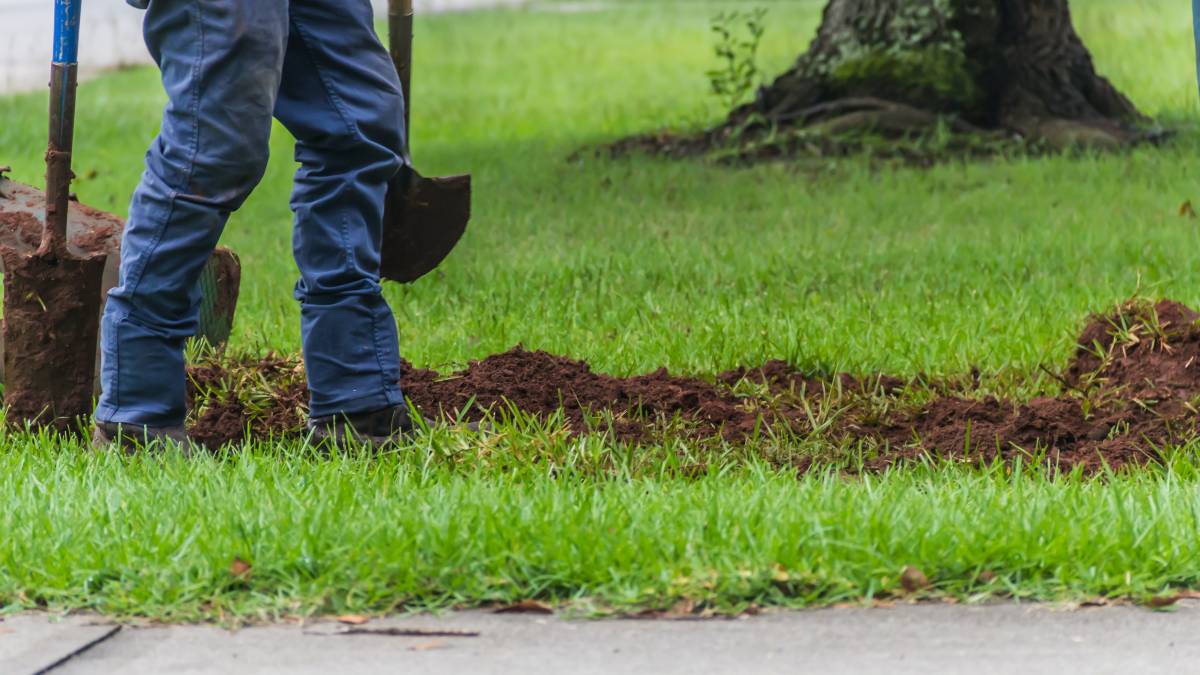
What is the estimated cost of digging a trench?
Get a free quote nowPost to find a price. It's free and only takes a minute.
Price guide
$400 - $1,200
low
$400
median
$800
high
$1,200
Last Updated on
Finding the exact cost of digging a trench ahead of time is not easy since you can't plan for the surprises that might be waiting for you underground. Even seasoned experts might struggle to get the exact numbers for an earthwork, especially if they don’t have access to a complete analysis of the site.
Assuming the surface is soft and there are no underground or above-ground obstacles, the average cost to dig a trench per foot starts at $4. Depending on the contractor, the price can go up to $12. If the contractor charges based on the length of the trench dug, you could expect to pay anywhere from $400 to $1,200 per 100 linear feet.
The following is a general cost breakdown for projects requiring a yard trench. The cost includes equipment, labor, cleanup, and support materials.
Type of Project |
Price (USD) |
Drainage |
1,900 - 5,100 |
Retaining Walls |
2,900 - 7,800 |
Electrical |
600 - 2,100 |
Foundations |
4,300 - 13,300 |
Water |
600 - 2,400 |
HVAC |
3,800 - 7,200 |
Sewer Line |
1,400 - 4,600 |
Gas |
300 - 800 |
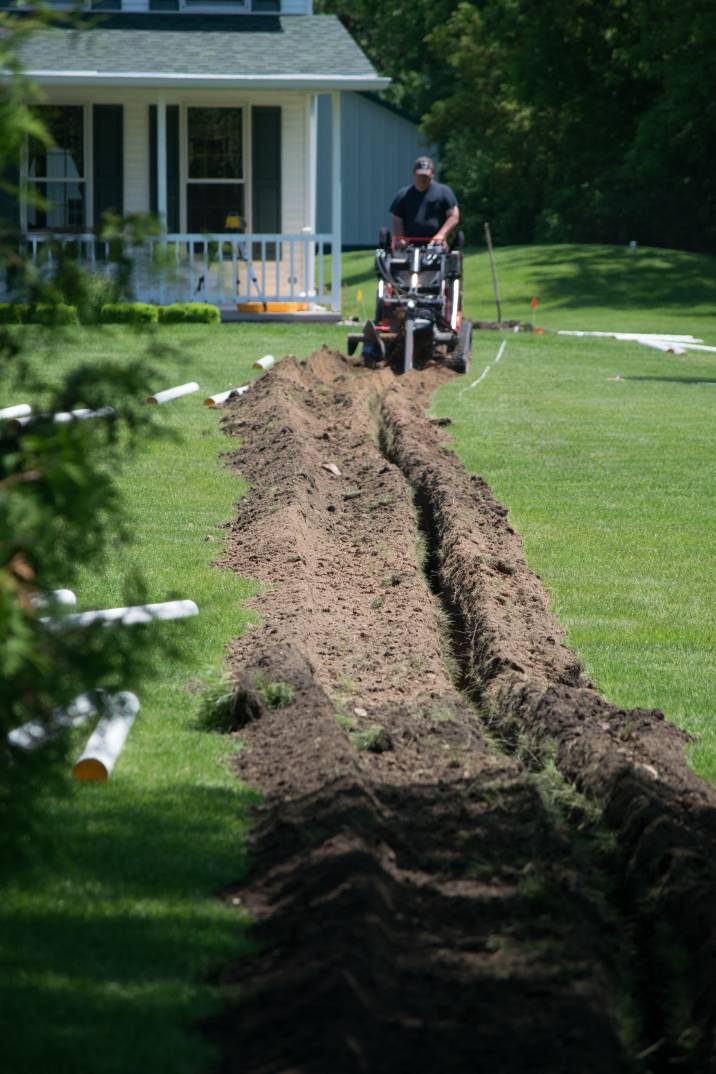
The type of trench determines the cost. For example, an electrical or Telco conduit trench — suitable for the laying of a 10 mm non-metallic PVC pipe — will cost more than a standard trench would. However, the exact amount will depend on the contractor's charges.
For a waterline trench, the price will increase per meter of the trench dug. This length-based cost also applies to a gas line using a 20 mm polyethylene pipe and a sewer, which tends to be the most expensive. Always ask for a quote from the contractor before any work gets underway because there is no reliable standard charge for each of the different types of trenches.
Trenches are dug for several reasons, but for the most part, they are dug to house telecommunication lines or electrical cables or to install sewage and drainage systems. Minor trenching projects do not need heavy machinery and are usually done manually using hand digging tools. If it’s a big project, you can rent trenching equipment or hire the services of a trenching contractor.
This guide has everything you need to know on trench digging, including:
What you need to know before digging
How much does it cost to dig a trench
Trench price estimates
How to choose between DIY or hiring a professional
Frequently Asked Questions
What you need to know before you start digging
Depending on the nature of the work, you might require a permit or council approval before you can start digging a trench. Always check with your local council before starting your trenching project.
It’s always recommended to check if there are any underlying services or utilities in your area before you dig. Best to find out before it’s too late.
Any trees or landscaping on the trench path must be removed. The cost of removing a tree is around $750. For other types of debris, the price is between $100 to $800, depending on the size of the debris.
Trench-digging price per foot
The default price of a 1-foot linear trench is $8, including labor and equipment charges. The cost might be reduced if you decide to do it yourself.
This price applies only in the following circumstances: if you don’t require a permit to dig a trench in your area if the cost is determined solely by the length of the trench, and if you don't require any additional site clearing services or a land survey.
Trench-digging labor costs
The labor price per hour is around $30 to $50. This price accounts for support materials that include:
Plywoods to shore up trench walls
A hand pump to remove water
Flagging tape
This means that the cost of digging a 100-foot trench in soft soil is around $400, assuming that the trench takes about 12 hours to complete. Overall work includes planning, preparation, site protection, sourcing digging materials, acquiring equipment, and site cleaning.
The cost of a micro trench
Fiber optic cables and conduits need a trench of around 30 cm (one foot) deep and 2 cm wide, better known as a micro trench. Digging this type of trench is about $35 per linear foot.
You can rent a micro-trencher for around $125 per day, but the exact price will depend on how long you need to use it for. The per-day price might be less if you rent the micro-trencher for a few days, rather than just for a single 24-hour period.
Trench and conduit installation cost
The purpose of the trench, i.e., whether the trench is for electricity or a water line, a gas line, a cable, or a sewage pipe, determines the size. It’s best to let the professionals handle the trenching work, especially when installing utilities. Hiring a professional is expensive, but you won’t have to spend more money on future repairs.
The cost to install conduit for utilities
The cost is usually $8 per foot and accounts for labor, equipment, digging, and utility installation.
Cost by material type
Type of Line |
Added Price Per Linear Foot |
Total Per Linear Foot, including $8 avg installation |
1/2-inch non-metallic PVC pipe |
$0.25 |
$8.25 |
Copper for water |
$10 - $20 |
$18 - $28 |
4-inch PVC for sewer |
$1 |
$9 |
1-inch polyethylene for gas |
$0.25 |
$8.66 |
2-inch black steel pipe for HVAC |
$12 |
$20 |
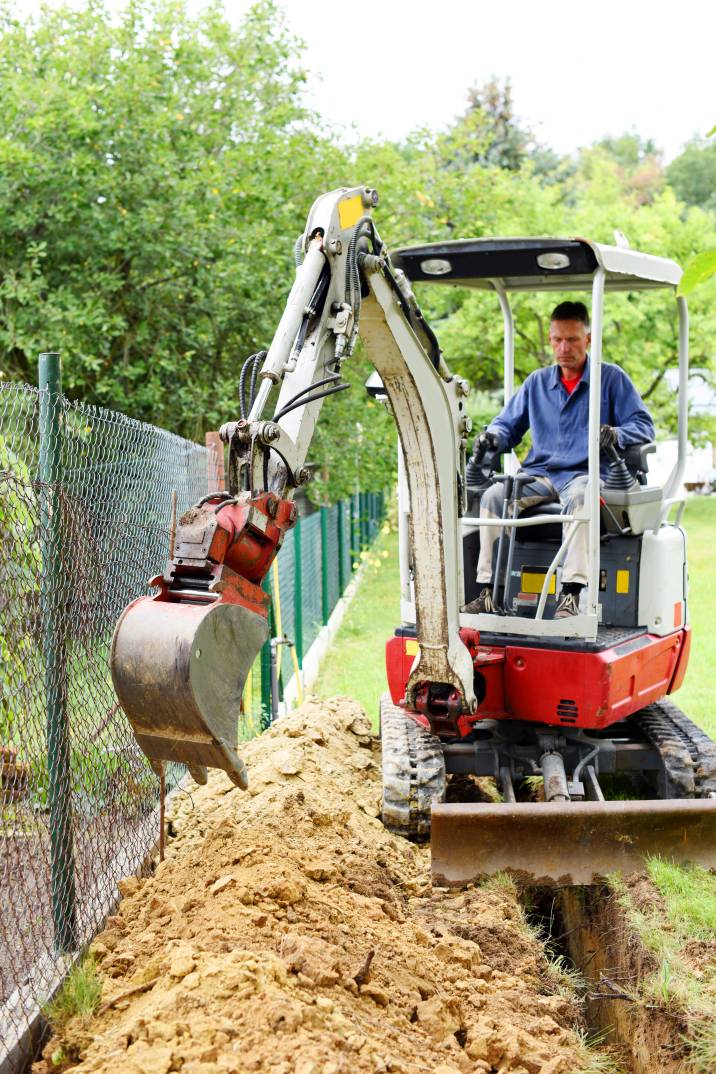
Drainage trench costs
The cost of installing a drainage trench is between $1,900 to $5,100 for a 100-feet linear trench. The average price for an exterior French drain is $20 to $30 per linear foot. For a French interior drain, the cost is between $45 to $60 per linear foot. The charge is around $70 per linear foot for a driveway drainage system.
Cost of an electrical trench
The trenching and installation cost of electrical wiring is between $600 and $2,100. This is not a DIY project, and the cost of hiring a professional electrician is about $50 to $100 per hour.
Other projects that need electrical trenching include:
Surveillance camera installation for about $1,400.
In-ground swimming pool for about $48,500.
In-ground hot tub package costs between $15,000 to $20,000, including the digging, plumbing, and electrical work.
Lighting fixture digging and installation is $460.
Installing an indoor and outdoor outlet is $200.
Waterline trenching
You should hire a professional plumber to work on a water line trench to avoid future repairs. Installing a water line costs between $600 to $2,400. Other projects that need this type of trenching include:
Water heater installation for between $800 to $1,400.
Drilling a well. The average cost of drilling a well is $5,500, but the price can go down to $1,500 or rise to $12,000 depending on the pump installed.
Installing a sprinkler system (around $2,500).
Sewer line
The cost to dig a sewer trench depends on the permits, obstacles in the proposed trench line, permits, and proximity to the main line. The price is between $1,400 to $4,600. For a four-inch PVC pipe, you’ll be required to pay an extra $1 per linear foot.
Gas and HVAC piping
The price to install or repair a gas line is $300 to $800. For a geothermal heating or cooling system using a black steel pipe, the cost is $3,500 to $12,800. If you prefer a two-inch black steel pipe, you’ll pay an extra $12 per linear foot.
Excavation and foundation projects
An excavation project is between $1,350 to $4,550. For a foundation project, homeowners pay between $4,300 to $13,300. The price can go up or down depending on the material used.
Retaining wall costs
The price for this is between $2,900 to $7,800.
DIY or hiring a licensed professional
You can DIY a simple digging project, but a licensed professional should always install the utilities.
A DIY project saves money, but the work is usually substandard, requiring numerous repairs. Always hire a professional if you want the job done right. Our platform, Airtasker, can connect you with several professionals who are ready to do the digging for you. Check the completion rate and read the reviews to get the right person for the job.
FAQs
The depth of the trench depends on its purpose. For example, a sewage line trench is deeper and wider than a cable line trench. On average, the trench should be 200mm metres wide and 600mm metres deep. A micro trench is 10mm wide and 300mm metres deep.
In some areas, the homeowner must receive council permission to dig a trench. Check with your local council & submit an enquiry with Dial Before You Dig before you get started.
Find trench digging contractors, fast
Post a task
Related price guides
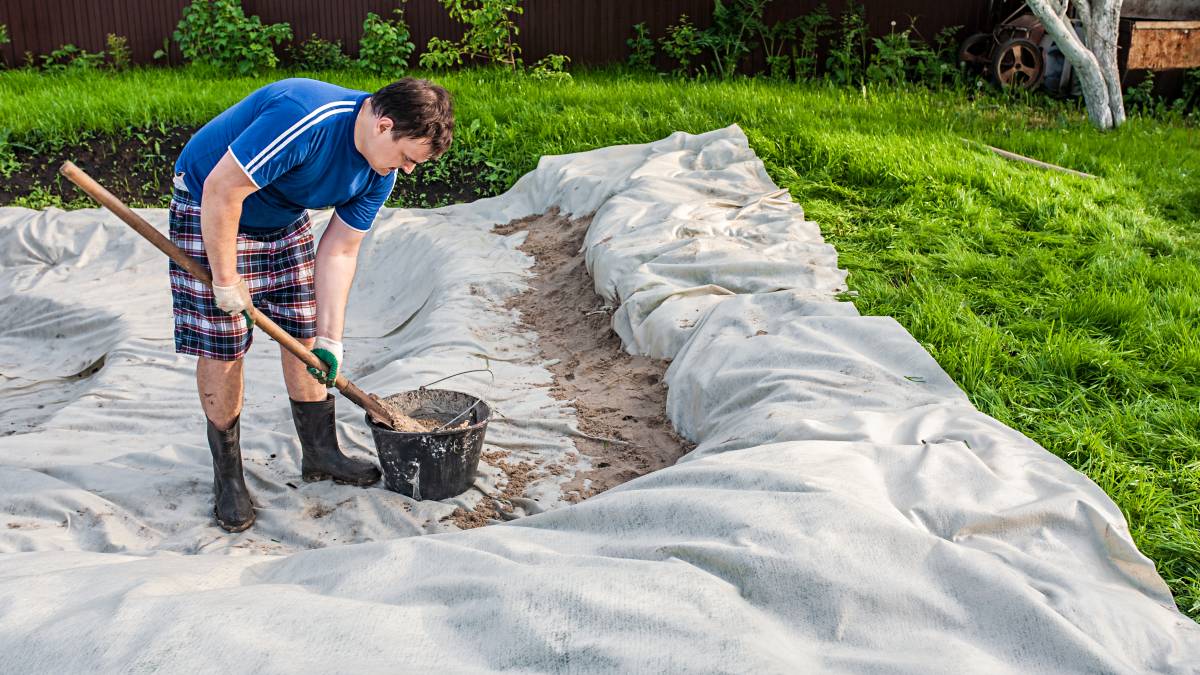
How much does a water feature cost?
Read more
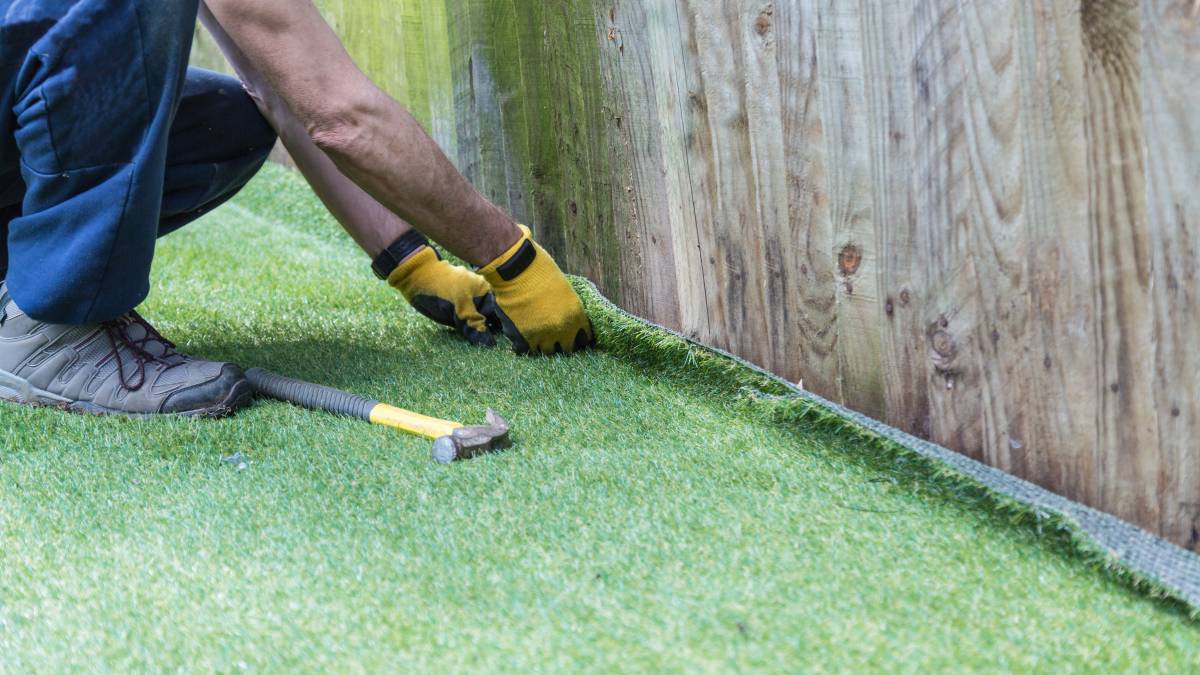
How much does artificial grass cost?
Read more
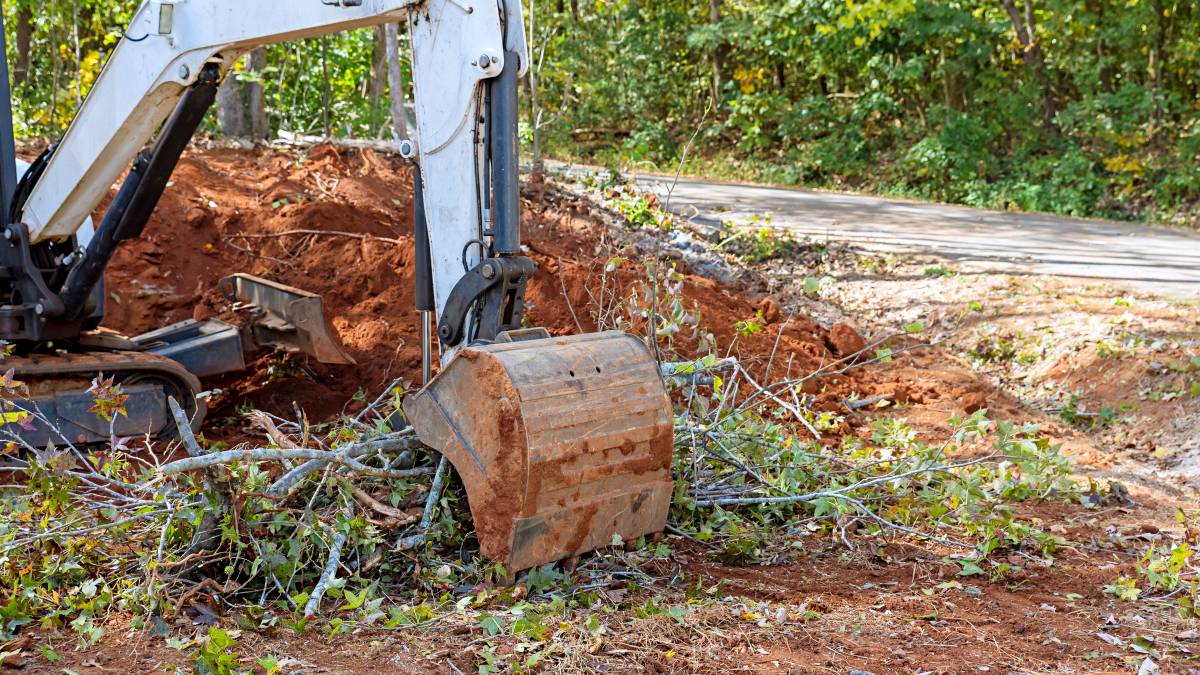
How much does it cost to clear land?
Read more
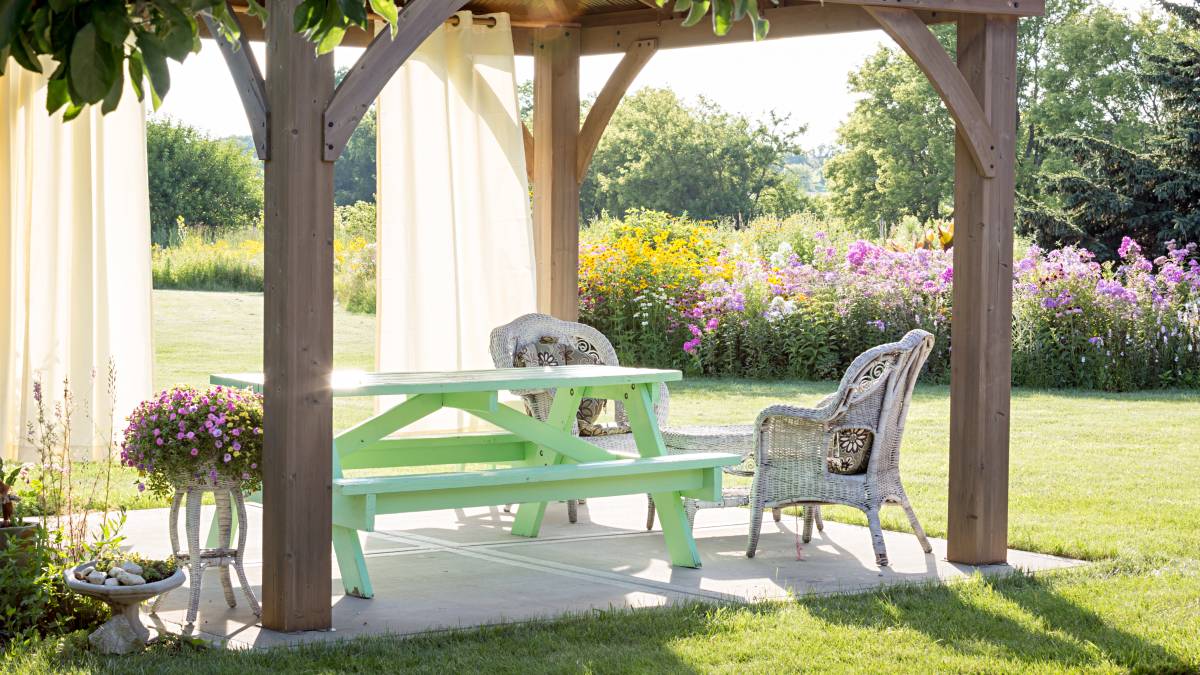
How much does landscaping cost?
Read more
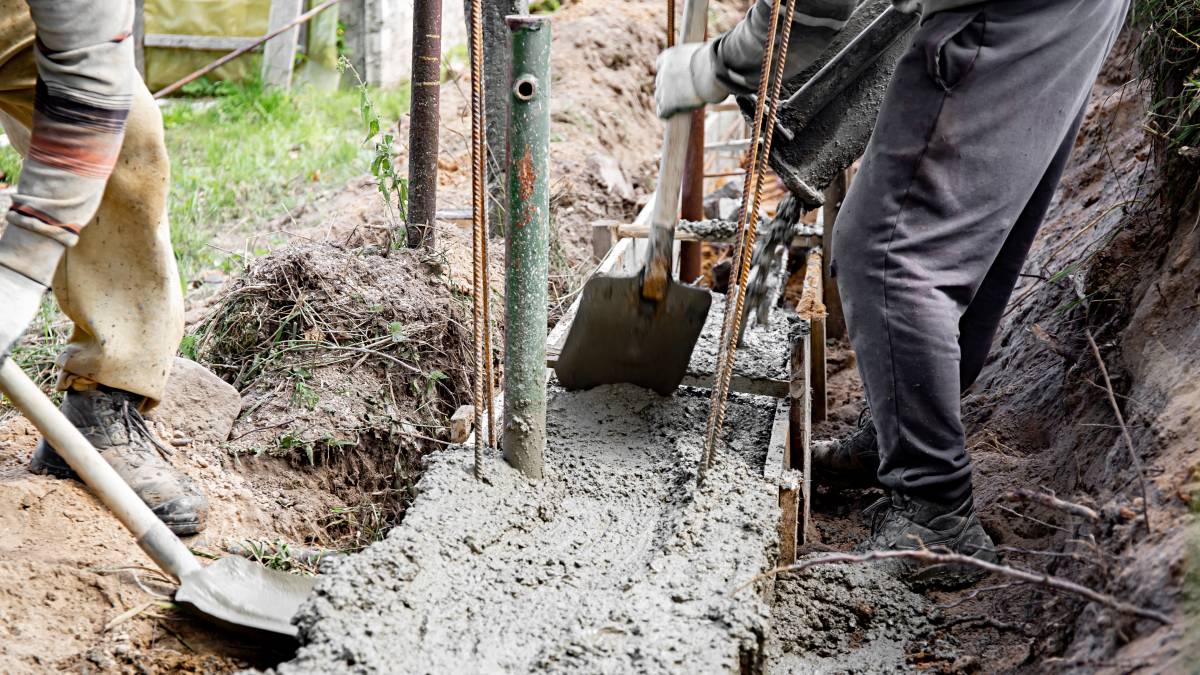
How much does a retaining wall cost?
Read more
Related articles
